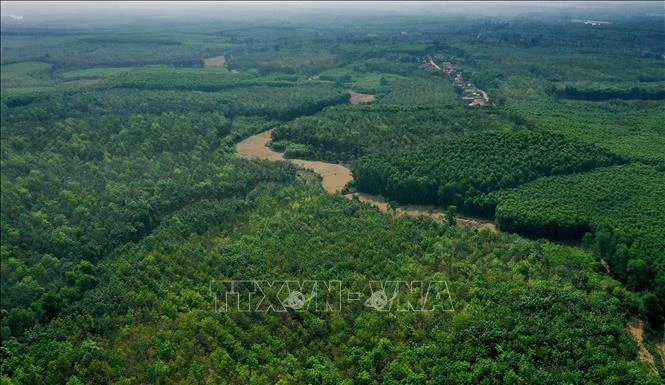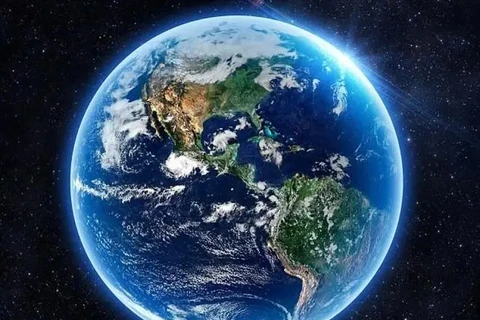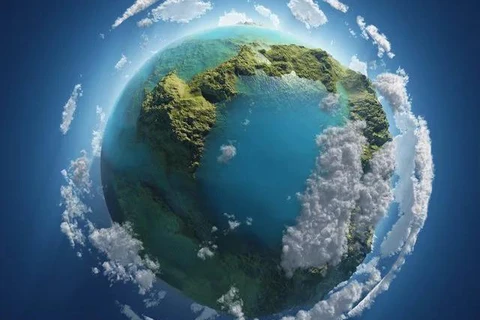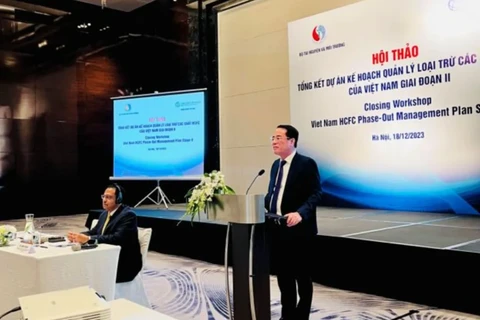
Hanoi (VNA) – As a signatory to the Vienna Convention for the Protection of the Ozone Layer and the Montreal Protocol on Substances that Deplete the Ozone Layer, Vietnam has over the past years realised its responsibility to manage and eliminate greenhouse gases and ozone depleting substances, Deputy Minister of Natural Resources and Environment Le Cong Thanh said on September 16.
He made the statement while attending a conference in Hanoi to mark Vietnam’s 30-year membership of the pacts which drew the participation of domestic and international experts from the Ministry of Natural Resources and Environment, the Ministry of Agriculture and Rural Development, the United Nations Environment Programme (UNEP), and the World Bank.
Thanh highlighted that Vietnam has completely phased out chlorofluorocarbons (CFCs), halon, carbon tetrachloride (CTC), and hydrochlorofluorocarbons (HCFC)-141b, and effectively controlled the substances in accordance with the Montreal Protocol, adding methyl bromid is now only used for sterilisation purposes.
The country eyes to stop importing HCDC by 2040, and phase down the consumption of hydrofluorocarbons (HFC) by 80% by 2045, he added.
According to Megumi Seki, Executive Secretary at the UNEP’s Ozone Secretariat, Vietnam has been a proactive and responsible member of the two pacts, as the nation has made efforts to carry out solutions to managing and phasing out greenhouse gas and ozone depleting substances. The country has got rid of some 220 million tonnes of carbon dioxide since it signed the deals.
The management and elimination of the controlled substances, implementation of sustainable cooling, technology transformation, and collection, recycling and treatment of the substances in Vietnam were on the table at the event.
Participants held that with a view to effectively implementing the pacts, Vietnam needs to complete institutions and policies on the management of the substances, issue standards and technical guidance, encourage climate-friendly technologies, and provide training to improve the management capacity of the enforcement officials.
The Vienna Convention was adopted in 1985, and the Montreal Protocol two years later.
In 1994, the United Nations General Assembly proclaimed September 16 the International Day for the Preservation of the Ozone Layer, commemorating the date of the signing, in 1987, of the Montreal Protocol.
The theme for the International Day this year is “Montreal Protocol: Advancing Climate Action”./.






















